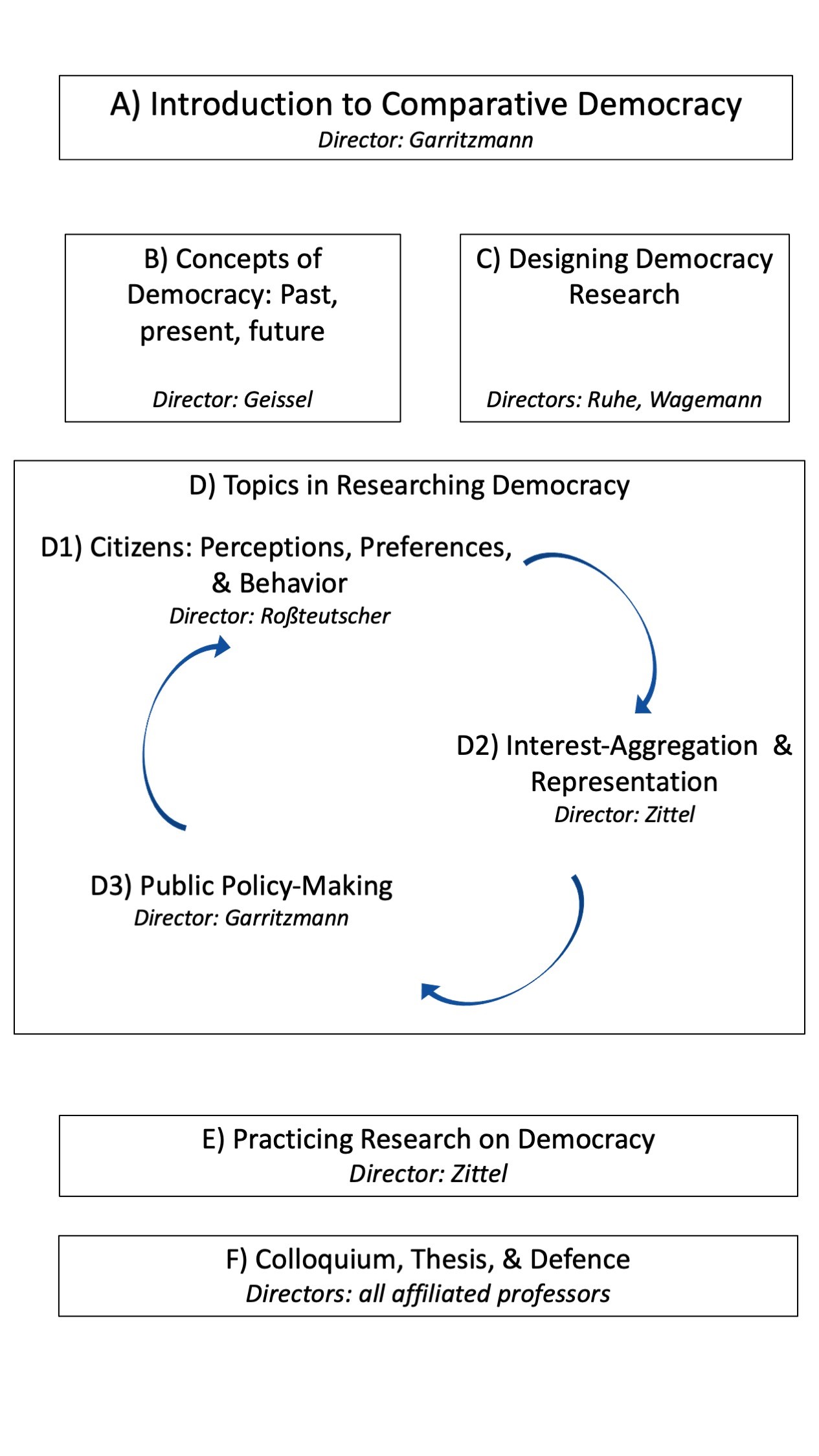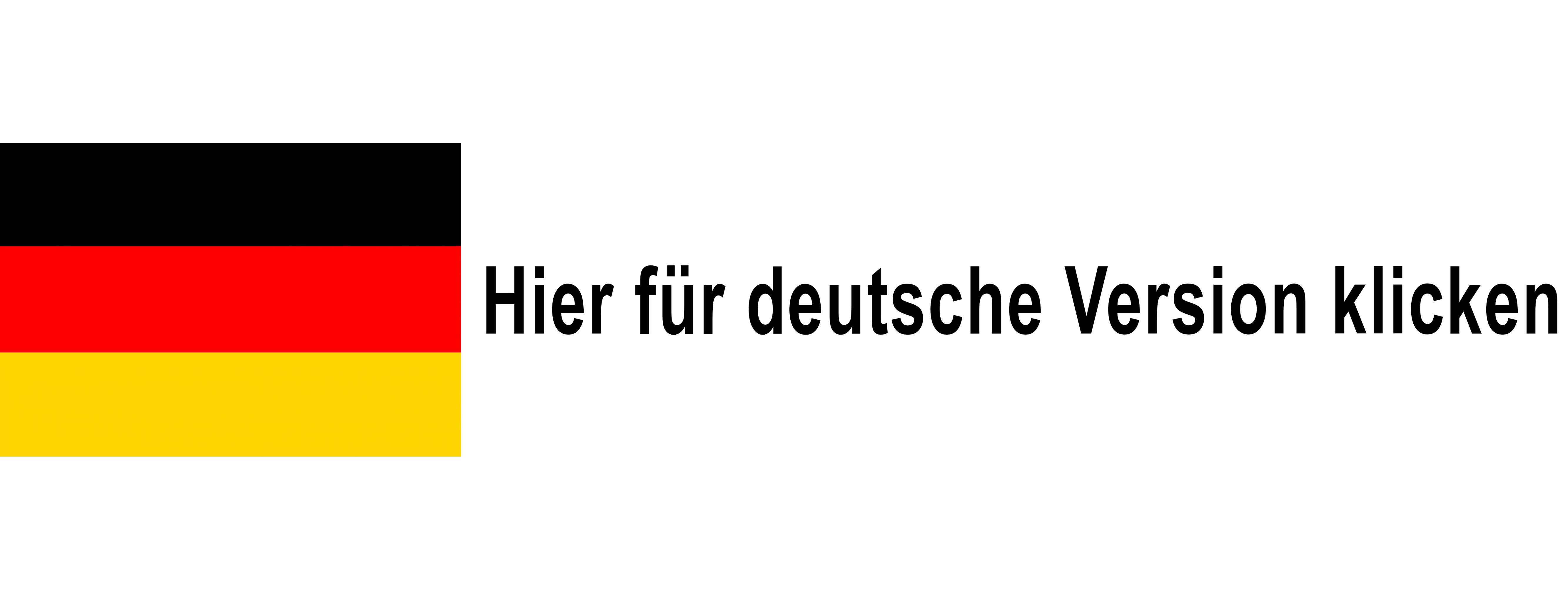- GU Home
- Faculties
- Faculty 03 Social Siences
- Students
- Study Programs at the Faculty of Social Sciences
- Master of Arts Comparative Democracy
- Content & Structure M.A. Comparative Democracy
- Information for Students
- Information for First Semesters
- Information for Prospective Students
- Study Programs at the Faculty of Social Sciences
- Bachelor of Arts Political Science Major
- Bachelor of Arts Political Science Minor
- Bachelor of Arts Sociology Major
- Bachelor of Arts Sociology Minor
- Bachelor of Arts Gender Studies Minor
- Master of Arts Political Science
- Master of Arts International Studies / Peace and Conflict Research
- Master of Arts Political Theory
- Master of Arts Sociology
- Master of Arts Economic Sociology
- Master of Arts Comparative Democracy
- Internship
- Vocational Orientation
- Examinations and Examination Office
- Student Counselling
At a glance
|
Standard duration of study: |
4 terms (2 years) |
|
Start of study: |
winter term (1st of October) |
|
Restriction of admission: |
The study program is admission restricted. |
|
Extent: |
120 Credit Points |
|
Number of modules: |
6 modules |
|
Type of module examinations: |
Written assignments Written exams Oral exam |
|
Language of instruction: |
English |
|
Study Program responsible: |
Modular and content structure
The
Master's program in Comparative Democracy is modular in structure. The program
is divided into six intertwined modules.
Content:
Master’s level introduction to research in comparative
democracy:
- Introduction and overview of course content for the degree MA Comparative Democracy
- Historical and intellectual development of democracies
- Democracy and autocracy as political systems
- Variations in different forms of democracy, and the roots and consequences thereof
- Paradigms of political science, key approaches and debates in the field, subject history
Module final examinations, course credits, and proof
of participation:
The course "Introduction to Comparative
Democracy" (3 CP) must be
attended. The module ends with a written exam (5 CP) following the course.
The module is
completed with a total of 8 credit
points.
Content:
Attendance of 2 classes in the area “Concepts of
Democracy – Past, present, future“.
Module final examinations, course credits, and proof
of participation:
Students must
prove active participation in two seminars (3 CP each). The module concludes with a written exam or term paper
(5 CP) following one of the seminars
attended.
The module is
completed with a total of 11 credit
points.
Content:
Attendance of 2 seminars in the area of “Research
Design” (one with a focus on qualitative and one on quantitative designs)
Module final examinations, course credits, and proof
of participation:
Students must prove active participation in one
seminar on qualitative research designs (3
CP) and one seminar on quantitative research designs (3 CP). One partial module
examination (2.5 CP each) must
be taken after each seminar in the form of written examinations of 60 minutes
each. The overall grade is composed of the average of both written exams. Both
exams must be evaluated with at least sufficient in order to pass the module.
The module is completed with a total of 11 credit points.
Content:
Attendance of 2 seminars in the area “D1
- Citizens: Perceptions, Preferences, & Behaviour.
Module final examinations, course credits, and proof
of participation:
Students must
prove active participation in two seminars (3 CP each). The module concludes with a written exam or term paper
(5 CP) following one of the seminars
attended.
The module is
completed with a total of 11 credit
points.
Content:
Attendance of 2 classes in the area “D2
- Interest Aggregation and Representation”.
Module final examinations, course credits, and proof
of participation:
Students must
prove active participation in two seminars (3 CP each). The module concludes with a written exam or term paper
(5 CP) following one of the seminars
attended.
The module is
completed with a total of 11 credit
points.
Content:
Attendance of 2 classes in the area “D3 - Public
Policy-Making”
Module final examinations, course credits, and proof
of participation:
Students must
prove active participation in two seminars (3 CP each). The module concludes with a written exam or term paper
(5 CP) following one of the seminars
attended.
The module is
completed with a total of 11 credit
points.
Content:
Students will gain insights into the
procedures and organisations of the institution where they have their
internship, and will actively contribute to the work carried out by the
institution. This internship is to be undertaken in an institu[1]tion
involved in work relevant (in the broadest sense) to politics and policy
processes, such as a public body, association, non-governmental organisation,
private sector businesses etc. Students are expected to find a suitable work placement
for themselves; teachers and administration are available to provide support to
students in their efforts to find such a placement. Students may carry out
their internship either alongside their studies or in their holidays, in either
part-time or full-time working patterns.
Module final examinations, course credits, and proof
of participation:
At least 300
hours must be completed in the internship. Longer internships are always
possible in principle. Students receive 10
credit points for completing the hours. Students receive 1 credit point for successful
participation in the study day.
The internship does not have to be registered with the
department in advance. There is no electronic exam registration for the
internship. It is accounted for via the module sheet for the internship.
The module is completed with a total of 11 credit points. There is no grade in
the internship module.
Content:
This research internship relates to the topics of
comparative democracy research.
Module final examinations, course credits, and proof
of participation:
The
research internship can be attended as a one-semester seminar with 4 SWS or as
a two-semester seminar with 2 SWS each (6
CP).
The
module concludes with a term paper (8 CP).
The module is
completed with a total of 14 credit
points.
Content:
- Students are to produce a Master’s thesis on a topic of their own choosing.
- Students will carry out a presentation, discussion, and reflection on their own research project in a colloquium, to take place either before or while they are completing their Master’s thesis, and will undertake a defence of their thesis following its completion.
Students will be called
upon to prove their capacity to formulate, represent, and respond to critical
arguments and as[1]sessments of a
comprehensive research project of their own design. The Master’s thesis
is typically empirical-analytical in design.
Thesis and Proof
of Attendance:
In order to register for the master's thesis, at least 56 CP must be proven, of which 19
CP in modules A and C. This means that modules A and C must have been
completed.
In the colloquium, students provide proof of participation and receive 3 CP for this. If possible, we
recommend that the colloquium is taken in the semester before the thesis is
written or in parallel to it. If possible, students should take the colloquium
with the person who also supervises the thesis.
Students receive 26 credit
points for the thesis. The thesis is not registered via the electronic exam
registration. Students use the master thesis registration form. Students
independently search for a supervisor at least one semester in advance. The
second examiner can also be assigned by the examination office if desired.
From the time of registration, students have 5 months to prepare the
thesis.
Students take the oral examination (defense of the master's thesis) after
the thesis has been corrected. Students coordinate the date with the
supervisor. Students receive 3 credit
points for the oral examination.
The entire module is completed with 32
credit points.

Contact
Dipl.-Soz. Alexander Simon
Student counselling for B.A. programs in Political Science and
Sociology / Student counselling for M.A. programs / M.A. admission /
B.A./M.A. internship counselling
E-Mail:
studienfachberatung.fb03@soz.uni-frankfurt.de
PEG Room 2.G 133
Open consultation hours:
Tuesday 11a.m - 1p.m.
Thursday 11a.m. - 1 p.m.
In lecture free time only on Tuesdays
Open telephone consultation hours:
Wednesday 11a.m - 1p.m.
or by individual arrangement
Goethe-University
Department 03
PEG-Building
Theodor-W.-Adorno-Platz 6
60323 Frankfurt am Main
- Studying at Goethe University
- International applicants
- Faculties
- Overview of study programmes
- Programme for refugees
- GRADE
- Goethe Business School (continuing education)
- Research at Goethe University
- Scientific news
- Goethe Welcome Center (for international researchers)
- Collaborative research projects
- Individual research
- Visiting fellowships
- Endowed chairs
- About the University
- News-in-brief
- University administration
- Campus locations
- Campus life
- University archives (German)
- Rhine-Main-Universities









